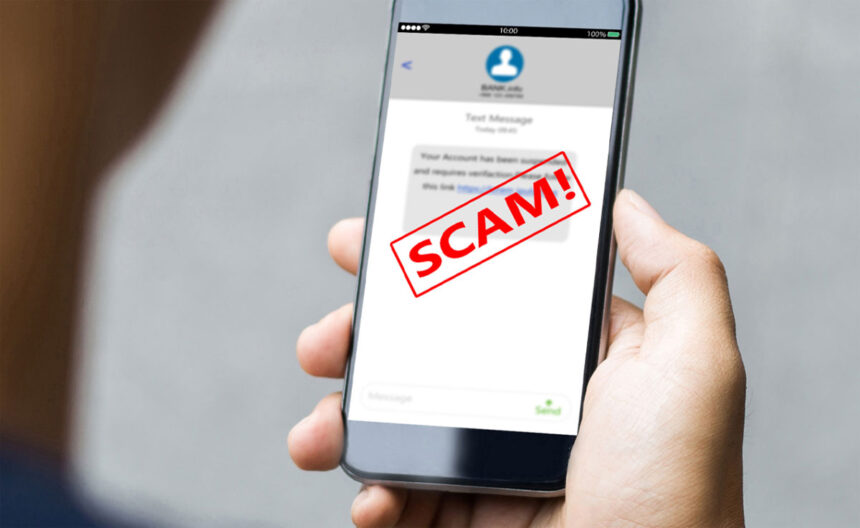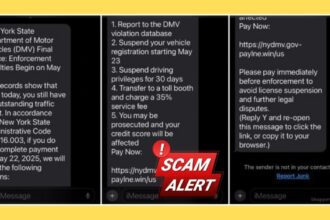A sophisticated job scam is targeting professionals across the UK, with fraudsters impersonating Heat Recruitment—a respected Bristol and Manchester-based specialist recruitment agency. This scheme represents a growing trend of recruitment fraud that preys on job seekers in high-demand sectors such as technology, finance, legal, and insurance. Understanding how these impersonation schemes operate is crucial for professionals seeking legitimate opportunities in today’s competitive job market.
Understanding the Threat of Heat Recruitment Impersonation Scam
Heat Recruitment, a specialist agency with offices in Bristol and Manchester serving the Digital & Technology, Financial Services, Insurance, Legal, Sales, and Public Sector divisions, has become the latest target for sophisticated job scammers. As a member of the BGI group with 51-200 employees and a verified LinkedIn presence, Heat’s strong reputation makes it an attractive cover for fraudsters seeking to exploit job seekers’ trust.
Unlike generic employment scams, impersonators targeting Heat Recruitment leverage the company’s specialized industry focus to create convincing approaches. By mimicking legitimate recruitment processes for specialized roles in technology, finance, insurance, and legal sectors, scammers create an air of authenticity that can fool even experienced professionals.
The scam typically begins with unsolicited communications claiming to represent Heat Recruitment, often referencing specific industry experience that makes the target believe they’ve been carefully selected. These approaches may reference legitimate Heat Recruitment specialties such as Insurance Underwriter recruitment, Wealth Management positions, Developer opportunities, or Legal recruitment—all areas where the real Heat Recruitment has established expertise.
Communication Tactics: The Multi-Channel Approach
Scammers impersonating Heat Recruitment employ sophisticated communication strategies designed to appear legitimate while avoiding detection:
Text Message Initiation
The initial contact often comes via text message, a departure from legitimate recruitment practices but increasingly common in scam approaches. These texts typically:
- Reference specific professional experience pulled from LinkedIn profiles
- Mention Heat Recruitment by name, sometimes with specific divisions like “Heat Digital” or “Heat Legal”
- Suggest the recipient has been “shortlisted” or “identified” for specialized roles
- Create urgency by mentioning “exclusive opportunities” with “limited interview slots”
- Include partial information about salary ranges, typically above market rate
- Direct recipients to respond via text, WhatsApp, or non-corporate email addresses
Email Follow-Up
For those who respond to the initial text, subsequent communication often shifts to email, with several telltale characteristics:
- Email addresses that approximate but don’t exactly match Heat Recruitment’s domain (heatrecruitment.co.uk)
- Examples include domains like heat-recruitment.com, heatrecruit.co.uk, or heat-rec.com
- Professional formatting with copied logos and signatures from the legitimate company
- Attachments with job descriptions that may contain malware or tracking software
- References to real clients that Heat Recruitment works with, gleaned from public information
- Requests for updated CVs, portfolios, or work samples
Voice Conversations
In more elaborate schemes, scammers may conduct phone interviews impersonating Heat Recruitment consultants:
- Callers often use VoIP services that display UK area codes matching Bristol (0117) or Manchester (0161)
- Interviewers ask standard recruitment questions mixed with increasingly personal inquiries
- Minimal technical questions despite recruiting for specialized technical roles
- Discussion quickly shifts to personal details required for “onboarding” or “pre-screening”
- Promises of follow-up that leads to requests for identity verification or financial information
Red Flags to Identify Heat Recruitment Impersonation Fake Text / Email / Call
While these scams are becoming increasingly sophisticated, several warning signs can help identify fraudulent approaches claiming to be from Heat Recruitment:
1. Communication Channel Mismatches
Heat Recruitment, like most legitimate specialist agencies, follows established professional protocols:
- Initial outreach typically comes through LinkedIn InMail or corporate email, not text messages
- All legitimate emails will come exclusively from the @heatrecruitment.co.uk domain
- Professional recruiters provide clear contact details including direct lines to Heat’s offices
- Communication maintains a consistent professional tone throughout the process
2. Unusual Recruiting Processes
Legitimate specialist recruitment, especially in technical and regulated fields like Heat specializes in, follows predictable patterns:
- Detailed discussion of specific experience relevant to the role
- Multiple interview stages with increasing depth and specificity
- Technical assessments appropriate to the field (coding tests, case studies, etc.)
- Introduction to actual hiring managers at client companies
- Transparent discussion of the client company and role
Scams typically compress these processes, moving quickly from initial contact to requests for personal information without the proper vetting steps.
3. Inconsistent Industry Knowledge
As specialists in their sectors, genuine Heat Recruitment consultants demonstrate deep knowledge of their fields:
- Detailed understanding of technical requirements for roles
- Awareness of current market rates and compensation structures
- Knowledge of regulatory requirements in finance, insurance, and legal sectors
- Ability to discuss industry trends and challenges
- References to specific tools, platforms, and methodologies relevant to each sector
Scammers often reveal themselves through generic descriptions and lack of specific industry knowledge when pressed for details.
4. Requests for Unusual or Sensitive Information
Legitimate recruitment processes, especially in early stages, have clear boundaries around what information is appropriate to request:
Legitimate Early-Stage Requests:
- CV/Resume
- Portfolio examples (where relevant)
- Salary expectations
- Notice period
- Work authorization status
Suspicious Requests:
- Bank account details for “salary processing”
- National Insurance number before formal offer
- Passport or driving license copies in initial stages
- Home address for “contract preparation” before interviews
- Request for payment for “background checks” or “training”
5. Urgency and Pressure Tactics
Professional recruitment, especially for specialized roles, typically follows considered timelines:
- Reasonable time to review materials and prepare for interviews
- Clear explanation of process stages and approximate timeline
- Respect for candidates’ need to consider opportunities carefully
- Transparent communication about other candidates and competition
Scammers create artificial urgency with:
- “Time-limited” opportunities that must be acted on immediately
- Pressure to provide personal information quickly to “secure your place”
- Claims about positions being filled if you don’t respond immediately
- Mention of “other qualified candidates” ready to take the position
Protection Strategies: Safeguarding Your Career Search
To protect yourself from recruitment scams impersonating Heat Recruitment and similar specialized agencies, implement these protective measures:
1. Verify Through Official Channels
- Connect only through Heat Recruitment’s official website: heatrecruitment.co.uk
- Call their published office numbers directly: Bristol or Manchester offices
- Check the recruiter’s profile on LinkedIn, including connection to other verified Heat employees
- Message Heat Recruitment’s official LinkedIn page to verify the recruiter’s identity
- Verify job postings appear on Heat’s official job board or LinkedIn page
2. Maintain Communication Boundaries
- Keep early recruitment discussions focused on professional qualifications and role requirements
- Decline to provide personal financial information until formal offer stage
- Request video interviews where you can see the recruiter, preferably through corporate platforms
- Ask for client company details and verify these independently
- Document all communications and follow up in writing after phone conversations
3. Conduct Independent Research
- Research current recruitment scams in your industry sector
- Verify that described roles align with current market trends and needs
- Cross-reference salary offers against industry benchmarks using resources like Glassdoor
- Verify client companies mentioned by recruiters have legitimate operations
- Check recruiter names against Heat’s published team on their website or LinkedIn
4. Trust Your Professional Instincts
- Be suspicious of opportunities that seem too good to be true
- Question roles that perfectly match your skills without proper vetting
- Be alert to improper grammar, formatting, or tone inconsistent with professional communication
- Consider whether the recruitment process matches standard practices in your industry
- Be wary of recruiters unable to answer detailed questions about the role or client
Frequently Asked Questions
1. Is a Heat Recruitment Job Offer Text Legitimate?
No, unsolicited job offers from Heat Recruitment sent via text message are not legitimate. Heat Recruitment is a professional agency that adheres to standard recruitment practices, which include initial contact through professional channels such as LinkedIn or corporate email. Text messages claiming to be from Heat Recruitment, especially those offering positions you haven’t applied for or containing generic job descriptions, are almost certainly scams.
2. Is Heat Recruitment a Legitimate Recruitment Agency?
Yes, Heat Recruitment is a legitimate, well-established specialist recruitment agency based in the UK with offices in Bristol and Manchester. Founded in 2006, they are a verified member of the BGI group with 51-200 employees and specialize in Digital & Technology, Financial Services, Insurance, Legal, Sales, and Public Sector recruitment. The company maintains a professional website at heatrecruitment.co.uk and a verified LinkedIn presence. The scam issue involves fraudsters impersonating their recruiters, not the legitimacy of the actual company.
3. What Should I Do If I’ve Already Engaged with a Suspected Scammer?
If you’ve already responded to someone claiming to be from Heat Recruitment and suspect it might be a scam:
- Cease all communication immediately
- Do not provide any further personal or financial information
- Contact Heat Recruitment directly through their official website to report the incident
- Change passwords for any accounts you may have shared information about
- Monitor your financial accounts and credit reports for suspicious activity
- Report the incident to Action Fraud (the UK’s national fraud reporting center)
- Notify your bank if you’ve shared any financial details
4. How Can I Verify a Legitimate Heat Recruitment Consultant?
To verify whether someone genuinely represents Heat Recruitment:
- Check they’re using an @heatrecruitment.co.uk email address
- Call Heat’s main office numbers in Bristol or Manchester to confirm the person works there
- Look up the consultant on LinkedIn and verify they have an established profile connected to other Heat employees
- Ask industry-specific questions that a genuine specialist would be able to answer
- Verify the job opportunity appears on Heat’s official website or LinkedIn page
5. What Makes Specialist Recruitment Scams Different from General Job Scams?
Specialist recruitment scams targeting agencies like Heat Recruitment differ from general employment scams in several key ways:
- They focus on specific high-value sectors like technology, finance, and legal
- Scammers research industry terminology to appear knowledgeable
- They reference legitimate clients and projects from the agency’s public portfolio
- The fraud is typically more sophisticated, with greater investment in creating believable personas
- They target professionals with higher earning potential, making financial fraud more lucrative
The Broader Context: A Growing Trend in Recruitment Fraud
The Heat Recruitment impersonation scam is part of a troubling pattern of increasingly targeted and sophisticated recruitment fraud. Similar schemes have recently targeted other specialized agencies and firms:
Atherton Hunt: Energy sector specialists have been impersonated by scammers targeting professionals in renewable energy and emerging technologies.
Kirkland & Ellis: Legal professionals have been targeted by scammers impersonating this prestigious law firm’s recruiting team.
Talent Vibe Solutions: A completely fabricated recruiting entity created to target professionals across multiple sectors.
What unites these scams is their evolution from generic employment fraud to industry-specific targeting with greater investment in creating convincing approaches. This represents a significant escalation in the sophistication of job scams, moving from obvious “too good to be true” schemes toward more plausible impersonation of legitimate industry players.
Contributing factors to this trend include:
- Increased remote work adoption: The normalization of virtual hiring processes makes entirely remote recruitment seem more plausible.
- Data availability: Professional information readily available on LinkedIn and other platforms allows for targeted approaches.
- Economic uncertainty: Periods of layoffs and employment volatility create pools of qualified candidates actively seeking opportunities.
- Digital sophistication: Easy access to logo design, website creation, and communication tools enables convincing impersonation.
- Industry specialization: Focus on high-value sectors with complex recruitment processes provides cover for unusual requests.
Conclusion: Maintaining Vigilance in Specialized Recruitment
As recruitment scams continue to evolve in sophistication, professionals must adopt a proactive approach to verification and security during job searches. Legitimate specialist agencies like Heat Recruitment follow established professional protocols and welcome reasonable verification steps from candidates.
The most effective protection combines healthy skepticism with thorough verification. Remember that authentic specialist recruiters demonstrate deep industry knowledge, maintain professional communication standards, and follow logical recruitment processes appropriate to their sectors.
By understanding the specific tactics used in these impersonation scams and implementing consistent verification practices, professionals can protect themselves while still pursuing legitimate opportunities. In today’s increasingly complex recruitment landscape, the responsibility for security falls heavily on individual job seekers to verify before engaging.
The real Heat Recruitment, like other legitimate agencies, has a vested interest in maintaining trust in the recruitment process. By reporting suspicious communications and maintaining high standards for verification, professionals can help combat these scams while protecting their own career paths and personal information.









































